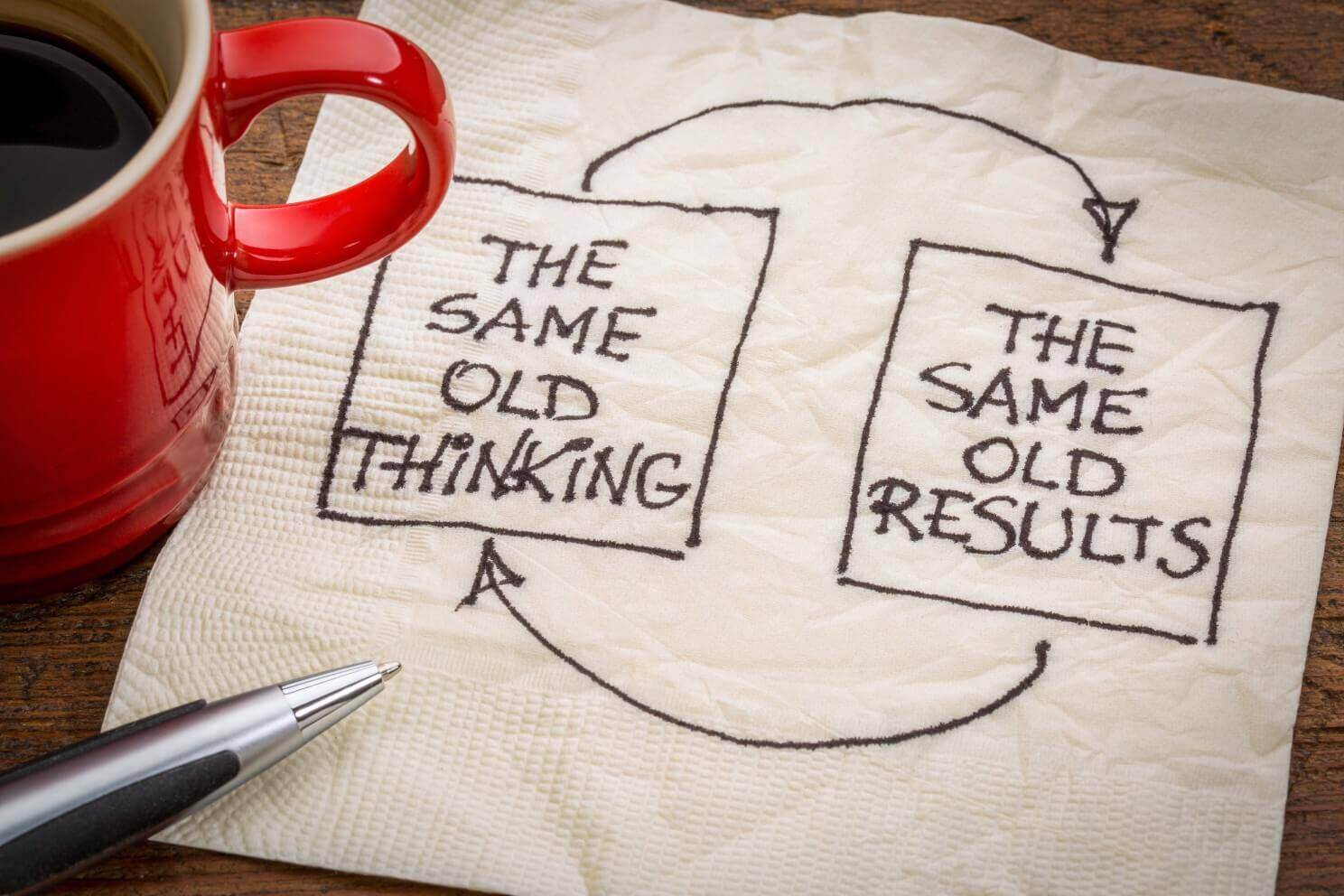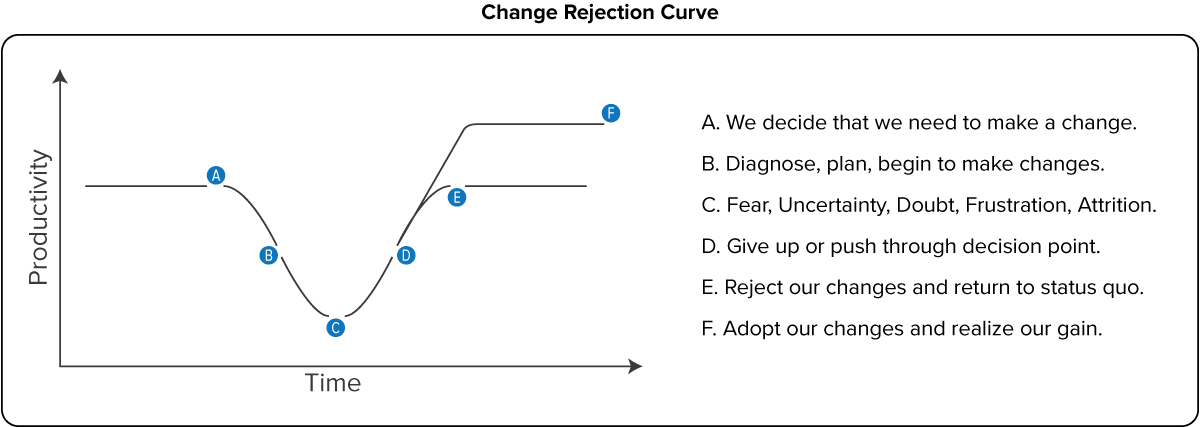Because I’m a change agent and love to create change when it creates a better outcome, I’m a fan of solving problems. One of my favorite quotes is from Albert Einstein:
“We can’t solve problems by using the same kind of thinking we used when we created them.”

All too often, we create problems because of the way we think about things then try to fix those problems without changing our thought process that generated the problem.
The Bigger Challenge
There is a bigger challenge that we face when trying to solve problems. That challenge is of time.
My twist on the above Einstein quote is:
“We can’t solve problems any faster than it took us to create those problems.”
Take a moment to think about the biggest problems you face today. Whether those problems are in your personal or professional life. The biggest problems you face are likely those that have been around for a very long time. They have likely evolved from something small that wasn’t a real issue at the time but have become something seemingly insurmountable over the course of time.
How Do We Overcome This Challenge?

I recognize that solving big problems can be done quickly (or at least more quickly) if we put enough effort into it. In the same way, referring to Einstein, if we are willing to change our frame of mind–if we work hard enough–we can overcome anything.
I believe there are at least four key things required to fix a problem more rapidly than it took us to create that problem.
1. Are You Willing to Admit Your Faults?
Just like any addiction, you have to be willing to admit you have a problem. Over the years of working with business leaders to help solve their business problems, I’ve found that too many are not willing to admit they have a problem… more importantly, we aren’t willing to admit we are likely the reason they exist.
When your tendency is to defend the symptoms of the problem, you are not going to get to the root. You aren’t going to change your way of thinking without admitting your way of thinking is problematic.
2. Are You Open-Minded?
 By nature, humans are very dogmatic. We want to think that the way it’s always been done is the way it should be done.
By nature, humans are very dogmatic. We want to think that the way it’s always been done is the way it should be done.
It reminds me of the story where the daughter asked her mom, “Why do we cut the ends off the roast before putting it in the pan?” Mom didn’t know other than she’d been doing that for years. Mom asked Grandma the same question, who also didn’t know the answer other than it’s been done that way for years. Grandma asked Great-Grandma who responded, “Because my pot was too short and needed it to be cut to fit.”
When you are dogmatic and think that only solutions you thought of before are the solutions to consider, you’ll never solve anything.
3. Are You Willing to Blow It Up?
Nothing bad can go away without replacing it with good. You can’t lose weight by not eating. You have to replace the bad food with good food in the right proportions.
You can’t make a problem go away without filling that void with something good.
So, are you willing to go to the drawing board and start from the ground up? Are you willing to properly design a good system that will replace the bad? That doesn’t mean you will need to do that but the willingness to do that may make all the difference in the world to achieving your goal of making a meaningful change.
4. Are You Willing to Put the Time and Effort In?
Years ago, I came up with the concept of the change rejection curve. The concept is pretty simple.
 Anytime you want to make a change you are going to see a dip in performance. You will be frustrated with that dip. You will start to wonder why you ever thought the change was a good idea.
Anytime you want to make a change you are going to see a dip in performance. You will be frustrated with that dip. You will start to wonder why you ever thought the change was a good idea.
In some cases, the change will see a positive impact soon enough that you’ll push through to the next level.
In some cases, you’ll give up too soon, go back to your old ways, and never see the improvement you were going for.
So, are you willing to put the time and effort to ensure that the change you are trying to make will work? Are you willing to demonstrate that you are worthy of the performance increase you seek?
Final Thoughts
I recognize that my idea of not being able to solve problems faster than they were created is a bit over-simplified. Sure, it’s possible that a problem that was 10 years in the making can be solved in a year.
That quote of mine is intentional hyperbole.
You can find ways to solve problems much faster but it requires real effort. It will still, likely, take much longer than you’d prefer. You are changing bad habits. You are changing hearts and minds. You are changing and affecting things you may not have considered before.
To affect real change takes real time.
Don’t skimp on the time and effort. Push through. Make sure you have actually solved the problem before you move to the next thing.
Feb 21, 2022 12:00:00 AM
Ready to simplify and succeed? Let’s make it happen—because your business deserves practical, no-nonsense wins. Find me on LinkedIn.


